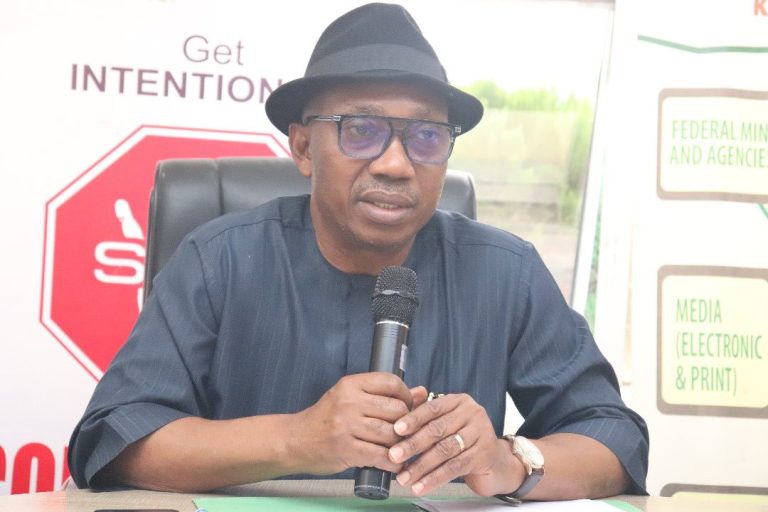From Idu Jude Abuja
To galvanise all stakeholders towards establishing a legal framework against single-use plastic waste in Nigeria and to further pursue the gains of a circular economy in line with SDG12, the Federal Government of Nigeria and the European Union, in partnership with civil society organisations (CSOs), are collaborating to drive home the message to the general public.
The United Nations Environment Programme (UNEP) works to support SDG12 by helping countries and companies create more efficient and circular economies through the handling of the waste value chain.
Consequently, the Minister of Environment, Malam Balarabe Abbas Lawal, speaking on Monday in Abuja during the EU-sponsored sensitisation workshop for the CSOs on the subject, emphasised the need for stakeholders’ collaboration to achieve economic growth goals.
The Minister, who was represented by the Director General of NESREA, Dr Innocent Barikor, stated that “single-use plastics have become a scourge on our environment.” He added that targeted items such as plastic bags, water bottles, straws, and microbeads are used for mere minutes but remain on the planet for hundreds of years.
“They clog our waterways, harm wildlife, and contaminate our soil. In Nigeria, plastic waste contributes significantly to environmental pollution, climate change, health risks, and economic losses due to single-use plastics.”
He further revealed that NESREA has developed draft National Guidelines for the implementation of Extended Producer Responsibility (EPR) for plastic packaging in 2024.
“Presently, it is conducting nationwide awareness campaigns in collaboration with stakeholders to promote alternatives. It has also developed draft National Environmental (Plastic Waste Control) Regulations, 2024.
“I urge you all to join us in this fight. Together, we can educate communities on the dangers of single-use plastics and promote sustainable alternatives such as reusable bags and refillable bottles.”
The Minister consequently urged the CSOs to collaborate in support of policy changes to ban single-use plastics, encourage corporate responsibility, and promote extended producer liability.
He added that breaking free from single-use plastics requires collective action. “Let us work together to protect our environment, preserve our natural resources, and ensure a healthier future for Nigerians.”
He also acknowledged the European Union for their support and commitment in addressing this issue.
In welcoming participants to the sensitisation workshop, the Director of Sensitisation and Education at NESREA, Bintu Kolo Mohammed, said that collaboration with the CSOs has become necessary as a tool to create far-reaching effects and to inform and seek contributions from all stakeholders in forming the guidelines.
The Director explained that this effort aims to ensure everyone is carried along and to avoid dissenting opinions on the release of the new guidelines for single-use plastics.
Participants corroborated that the government has chosen a reasonable approach in seeking collaborations for optimal performance against challenges. They also expressed their readiness to make contributions capable of adding value to the project.
